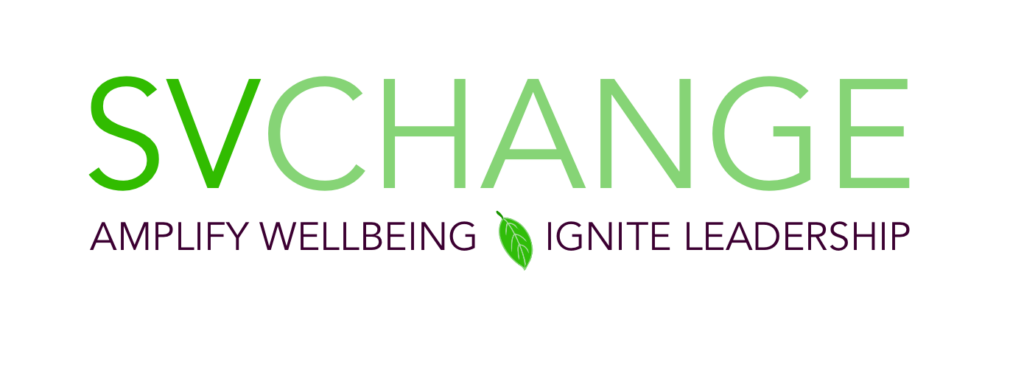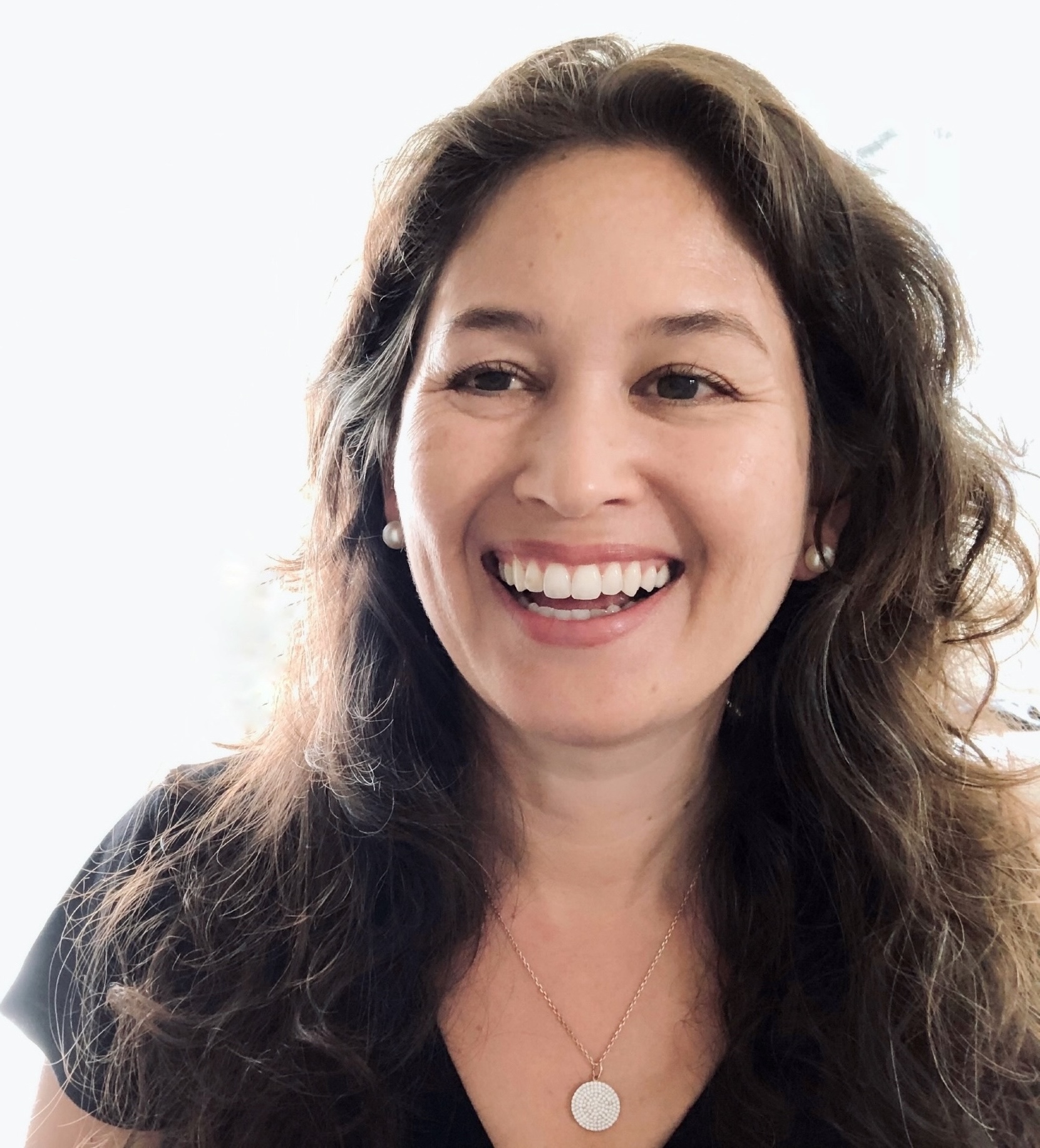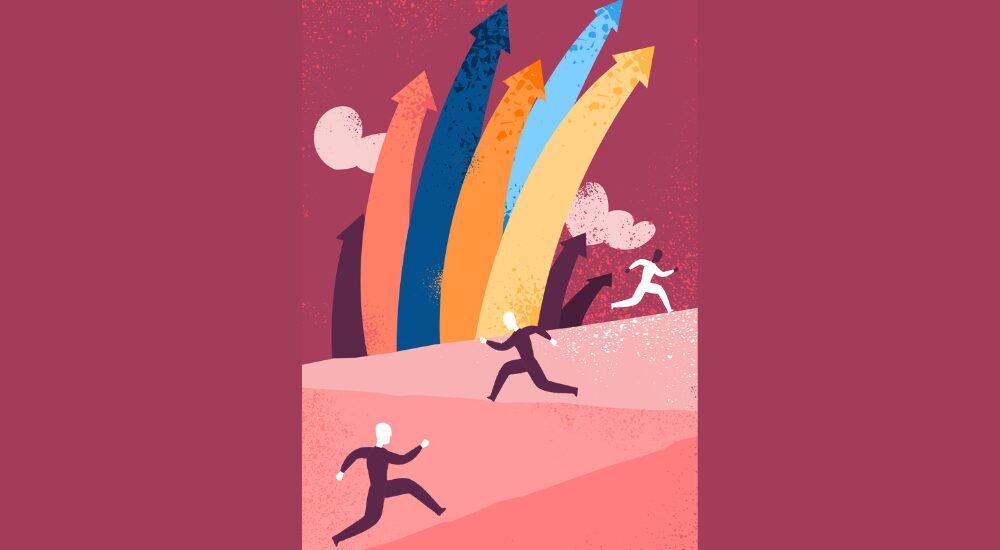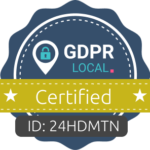For most of 2021, I sat down at my desk in the morning and committed to writing for two minutes. I wanted to be a writer. Not just someone who writes, but to really feel like a writer. I craved an unwavering, “I’m a writer” comeback when a stranger posed the all-too-common New York City interrogation, “what do you do?”
I’d spent the past 16 years hiding this urge to write, quietly convinced that the less-than-stellar grades on school papers had been the final word on my potential. But writing has always called to me. And in February of 2021, the proverbial phone rang. So, every day I sat down to write. And because James Clear said I only needed 2 minutes to form this habit, I started with the bare minimum. Easing in was key for me.
But there was something unexpected about writing that happened when I got far past the two-minute timer. And it wasn’t until I turned to my ongoing study of positive psychology that I understood what was happening: I almost disappeared into the experience of writing.
At times hours passed and I didn’t know. I didn’t care. I was totally absorbed. When I came out of the trance, I’d realized I forgot to eat, walk the dog or do anything else on my to-do list.
None of the nagging chores mattered because the experience of being fully absorbed was so compelling. Bestselling cookbook author, Julia Turshen mentioned the same feeling to me about being in the kitchen. Dancers say time stops on stage. Athletes simply state they were in the zone. But all of us can experience some level of flow in a myriad of activities.
Decades ago, researcher Dr. Mihaly Csikszentmihalyi (pronounced cheeks-sent-me-high) was on a quest to understand what really caused people to be happy. And in his 1990 book, Flow: The Psychology of Optimal Experience, Dr. Csikszentmihalyi describes flow as, “a state in which people are so involved in an activity that nothing else seems to matter; the experience is so enjoyable that people will continue to do it even at great cost, for the sheer sake of doing it.”
Benefits of Flow
Research suggests that people who find flow may experience these benefits, among others:
- Transient hypofrontality, which essentially means the voice in your head finally shuts off
- Increased satisfaction, fulfillment, and happiness
- Stronger performance in your pursuit
Characteristics of flow
Flow has at least 8 characteristics according to Dr. Csikszentmihalyi:
- Complete concentration on the task;
- Clarity of goals and reward in mind and immediate feedback;
- Transformation of time (speeding up/slowing down);
- The experience is intrinsically rewarding;
- Effortlessness and ease;
- There is a balance between challenge and skills;
- Actions and awareness are merged, losing self-conscious rumination;
- There is a feeling of control over the task.
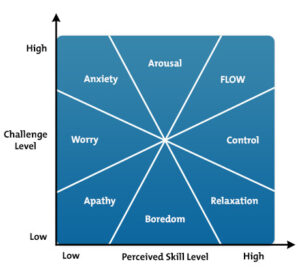
The challenge ahead of you must be equal to your perceived skill. In my writing example, the short time limit was about getting past resistance and fear. I knew I wasn’t feeling skilled enough to sit down and write a bestselling novel yet. But two minutes felt both comical and doable.
Now, I write as part of my full-time job. Funny enough, my fear isn’t that I don’t have the skill anymore. It’s that I don’t want to write without finding flow. Sadly, flow simply isn’t guaranteed every time. But I’ve found that the more I identify and spend time on activities in which I create flow, the more I experience it while doing them.
4 ways to get ready for a flow experience
If you’re motivated to experience a flow state, here are some key considerations:
- What do you either enjoy or have an interest in? You don’t have to be highly skilled at it yet.
- What clear goal can you set for yourself around the activity? You need both a clear goal and immediate responses.
- How can you add challenge to this activity? No challenge, no flow.
- What is the best time and place for you to remove distractions? Space from other noisy humans, dings, and pings.
I imagine the phrase, “when you do what you love you never work a day in your life” originated from someone who experienced flow at work. But finding flow doesn’t have to be about starting a new venture, career, or business.
In fact, what Dr. Csikszentmihalyi found is that flow activities are autotelic- meaning we’d do them for their own sake.
I can say without any hesitation that I would be writing whether or not I made money doing it. I’d be pursuing it because of the inherent joy and fulfillment it brings me.
And discovering an activity you can unequivocally say that about, is reason enough to go find your flow.
